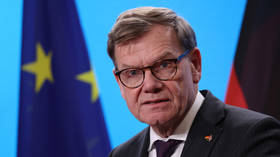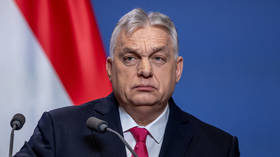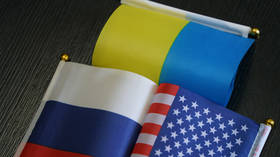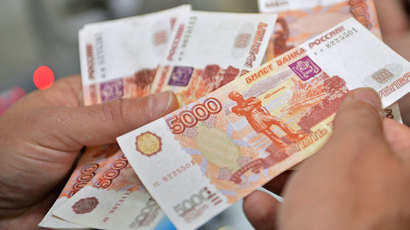Europe exposed: Over $3trn in emerging market loans
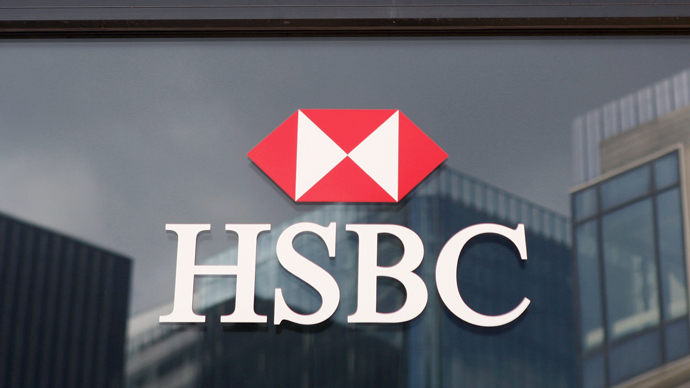
The Fragile Five, BRICS and MINT are acronyms for countries like Turkey, Mexico, Indonesia, and China that are at the focus of the emerging crisis. But Europe may be the most vulnerable, as banks have more than $3.4 trillion in loans in shaky markets.
European companies have a bigger exposure to emerging markets than US or Japanese firms, according to research by Morgan Stanley Capital International.
Europe’s most vulnerable banks- the ones with the most risk in emerging markets - are BBVA, Erste Bank, HSBC, Santander, Standard Chartered, and UniCredit, according to analysts, Reuters reported. Deutsche Bank analysts estimate the six most exposed European banks have more than $1.7 trillion tied up in developing markets.
Spain’s Santander is deeply intertwined in Latin America with bank earnings sourced from Brazil (23 percent) and 132 billion euro in loans across the region at the end of 2013.
Another big Spanish lender BBVA is very involved in Mexico, which in 2013 made up 80 percent of group profits. The bank has $55 billion in exposure to Mexico, whose peso weakened nearly 3 percent in January.
BBVA and UniCredit have high exposure in Turkey, Standard Chartered and HSBC have exposure to India and Indonesia, according to analysts cited by Reuters.
At the end of September, European banks had $3.4 trillion of loans in developing countries, according to data from the Bank for International Settlements. British banks had a $518 billion exposure in Asia and Pacific regions, Spanish banks had a $475 billion in Latin America, and French and Italian banks both loaned $200 billion in ‘southern’ European economies.
European banks hold about 12 percent of their assets in emerging markets, which are high risk but high return, Deutsche Bank analyst Matt Spick told Reuters.
Weak economic growth, paired with the US’s decision to wind-down its stimulus bond-buying program has sent emerging markets into a financial frenzy and currencies in South Africa, Turkey, and Mexico to pre-crisis lows. Investors are selling off their emerging market assets to Europe and the US, which are regaining economic strength and may bump up interest rates soon.

'Threat' to Europe's banks
"When currency [volatility] combines with revenue slowdowns and rising bad debts, we see compounding threats to the exposed banks,” Spick told Reuters.
According to Spick, Standard Chartered may be the most exposed bank, as 90 percent of the bank’s earnings are dependent on Asian, African, and Middle Eastern loans.
Brazil, Russia, India, China, and South Africa, the BRICS nations account for 25 percent of global gross domestic product, and as a whole their growth disappointed in 2013: Russia’s economy only grew 1.3 percent by preliminary estimates, and China expanded by less than 8 percent for the first time in 20 years, with growth slowing to 7.5 percent.
With the exception of China - which keeps tight control over the yuan - BRICS currencies have been badly weakened. India’s rupee has had one of its worst years ever, and in 2013 lost 11 percent against the dollar. The Russian ruble has hit a 5-year low against both the dollar and euro.
Mexico, Indonesia, Nigeria, and Turkey make up the ‘MINT’ countries - economies that are forecast to eventually eclipse the BRICS. MINT nations continue to be hit hard by the emerging crisis, and have seen large currency devaluation.
Devaluation is partly a reaction to the US decision to taper, but domestic monetary policy set by central banks- like interest rates and currency controls- also have a big effect on currency strength. Turkey and India have raised rates in an attempt to counter weaker currencies.
Negative shocks in the emerging market – fueled both internally and externally, have resulted in a $7 billion leak out of exchange traded funds in developing nation assets in January 2014, according to Bloomberg data.
Europe is currently trying to reform its banking system by performing stress tests to make sure banks have adequate capital, and it can expose weak points and boost investor sentiment after it was pummeled by the 2008 financial crisis.




